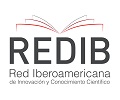Tembladera: una constante cocedura de identidad nacional cubana
DOI:
https://doi.org/10.14409/eltaco.10.20.e0160Palabras clave:
Cuba, identidad nacional, José Antonio Ramos, memoria, historiaResumen
Los discursos de identidad nacional están siempre en proceso de creación y (trans)formación. En ciertos momentos particulares del país, tenemos la necesidad de afirmarnos ante nosotros mismos ya que los acontecimientos históricos decisivos obligan al pueblo a hacer una (re)construcción de la identidad nacional. En Tembladera, para lograr una redefinición y una autoafirmación nacional, José Antonio Ramos indaga y analiza el ser cubano y exige cambios sociopolíticos. Promueve los discursos de la (re)construcción de identidad nacional y trata de lograr su propósito al enfatizar la educación de los jóvenes, el papel de la memoria y el significado de la tierra cubana. A través de cada personaje y sus acciones, muestra claramente «lo que debemos ser». En este intento, podemos poner algunos de sus planteos con sus presupuestos ideológicos a la par de Nuestra América de José Martí y ¿Qué es una nación? de Ernest Renan. Los discursos de la identidad nacional de una época quedaron cristalizados en obras literarias como Tembladera, siguieron construyéndose a través de los años y siguen (re)construyéndose en este preciso momento, lo que habilita una comparación entre discursividades diversas que sostienen un propósito común.





















